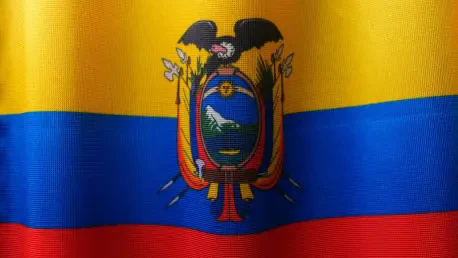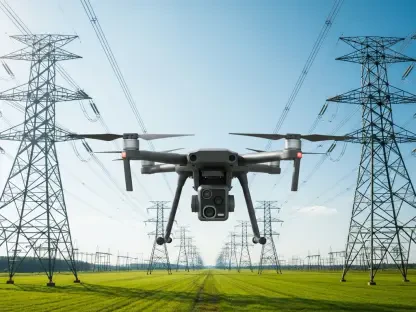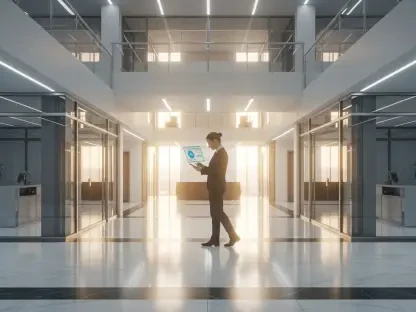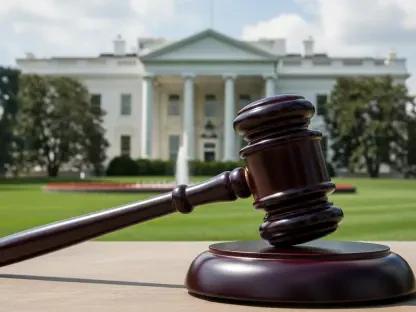As violence and drug trafficking continue to challenge stability in Latin America, few voices carry as much weight on these issues as Donald Gainsborough. A political savant and leader at Government Curated, Donald has spent decades shaping policy and legislation, with a deep focus on security and governance in the region. In this interview, we explore Ecuador’s recent referendum on foreign military bases, the broader implications for President Daniel Noboa’s fight against organized crime, historical sensitivities around foreign military presence, and the escalating violence tied to drug trafficking. We also delve into the evolving relationship between Ecuador and the United States, as well as public sentiment toward Noboa’s leadership.
Can you walk us through the recent referendum in Ecuador and what it meant for foreign military bases?
Certainly. The referendum in Ecuador was a pivotal moment, as it asked voters whether to allow the return of foreign military bases, specifically reopening the door for the U.S. to re-establish a presence at an airbase in Manta on the Pacific coast. This base was once a key hub for anti-drug operations before Ecuador banned foreign military bases in 2008. The proposal aimed to reverse that ban, framing it as a necessary step for international cooperation in combating organized crime. However, with nearly 90 percent of the votes counted, close to two-thirds of Ecuadorians rejected the idea. It reflects a deep-seated concern about national sovereignty and past experiences with foreign military presence.
What do you think drove such a strong rejection of this proposal among voters?
I believe the rejection stems from a mix of historical grievances and current anxieties. Many Ecuadorians remember the U.S. base in Manta and the issues it brought—allegations of abuses by soldiers, including the sinking of fishermen’s boats, mistreatment of locals, and social problems like increased prostitution near the base. Since the soldiers often had immunity, there was little accountability, which left a bitter taste. Today, there’s a strong sentiment that Ecuador should handle its own security with its police and army, rather than relying on foreign powers. Many voters also pointed to corruption and weak law enforcement as the real problems, not a lack of foreign bases.
How does this outcome affect President Noboa’s strategy to tackle organized crime in Ecuador?
It’s undoubtedly a setback for Noboa, who has been vocal about the importance of foreign cooperation, including the potential for shared or foreign bases, as a cornerstone of his fight against organized crime. He’s framed this as essential for addressing the unprecedented violence tied to drug trafficking gangs. Without the bases, he loses a key tool he was banking on. That said, Noboa has already ratified agreements with the U.S. for joint military operations and aerial interceptions, so he’s not starting from scratch. I think he’ll pivot to maximizing these existing frameworks while doubling down on domestic efforts like deploying soldiers on the streets and in prisons, though it may slow his broader security agenda.
Can you elaborate on the historical context behind Ecuadorians’ wariness of foreign military bases?
Absolutely. The U.S. base in Manta, which operated until 2009, is a significant chapter in this story. While it was pitched as a critical asset for anti-drug efforts, it became a source of tension for many locals. There were reports of U.S. soldiers mistreating residents, damaging local livelihoods—like the sinking of fishing boats—and contributing to social issues in surrounding towns. The immunity granted to foreign troops meant there was little recourse for affected communities, which fueled resentment. These memories linger and shape public opinion today, making the idea of foreign bases synonymous with a loss of sovereignty for many Ecuadorians.
Beyond the military bases, what other significant issues were part of this referendum, and how did voters respond?
The referendum wasn’t just about bases; it covered several governance-related proposals. One was a measure to convene an assembly to rewrite the constitution, which was rejected by over 61 percent of voters. There were also proposals to cut public funding for political parties and reduce the number of legislators in the National Assembly from 151 to 73. Both of those failed by a wide margin as well. I think this reflects a broader frustration with political reforms that seem disconnected from immediate concerns like violence and economic struggles, alongside fatigue from frequent elections and referendums in recent years.
How has the surge in violence shaped the backdrop of this referendum and voter attitudes?
The violence in Ecuador right now is staggering. The country has become a major transit point for cocaine from Colombia and Peru, and drug trafficking gangs are battling for control over ports and coastal cities. We’re seeing attacks on politicians, journalists, and even presidential candidates, with murder rates hitting historic highs—over 4,600 in the first half of this year alone. This chaos framed the referendum, but rather than pushing voters toward foreign military help, I think it deepened their resolve to address these issues internally. Many feel that foreign bases won’t solve the root causes like corruption or weak institutions, and the violence only heightened their protectiveness over national sovereignty.
Even with the ‘no’ vote, what role does the U.S. continue to play in Ecuador’s security landscape?
The U.S. remains a key partner despite the referendum outcome. There are already agreements in place for joint military operations, and an aerial interception deal allows for drug and weapons seizures at sea. Just last year, Noboa ratified two significant pacts with the U.S. to bolster security cooperation. The U.S. has also praised Noboa as an excellent ally in curbing illegal immigration and drug trafficking. Moving forward, I expect this relationship to stay strong, focusing on intelligence sharing and joint operations, even if a physical base in Manta isn’t on the table. It’s a pragmatic partnership that both sides value.
How are Ecuadorians currently viewing President Noboa’s leadership amidst these challenges?
Public sentiment toward Noboa is mixed and seems to be fraying at the edges. He’s been in office since November 2023 and has taken bold steps—deploying soldiers, launching raids on drug strongholds, and declaring states of emergency. But the referendum loss, coupled with his recent cancellation of a popular diesel subsidy that sparked protests, has eroded some of his support. There’s also a sense of voter fatigue after multiple elections and referendums, and disinformation campaigns haven’t helped. While some appreciate his tough stance on crime, others question whether his policies address deeper systemic issues, and this latest defeat could weaken his political capital.
Looking ahead, what is your forecast for Ecuador’s battle against organized crime and drug trafficking?
I’m cautiously optimistic, but the road ahead is steep. Ecuador’s position as a transit hub for cocaine means the pressure from drug trafficking gangs won’t ease anytime soon. Noboa will likely lean harder on domestic security forces and existing international partnerships, especially with the U.S., to keep up the fight. However, without addressing corruption and strengthening institutions like the police and judiciary, these efforts risk being short-lived. I foresee more states of emergency and high-profile operations, like the recent capture of a major gang leader, but sustained progress will depend on building public trust and tackling the socioeconomic drivers of crime. It’s a long game, and the next few years will test Ecuador’s resilience.









